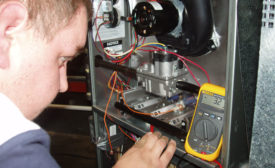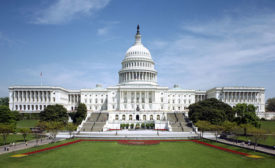Home » home energy
Articles Tagged with ''home energy''
Retail channel accounts for largest percentage of units sold
Read More
Residential Energy Management Expected to Grow
REM helps to conserve energy resources and optimize the use of energy
July 27, 2015
Measuring and Verifying Energy Efficiency
Measuring and verifying energy efficiency ensures the job was done correctly
Read More
Residential Energy Management Market Forecast to Reach $15.6 Billion by 2019
A majority of the growth is expected to take place in North America and Europe
July 2, 2015
Smart Home Energy Management Device Market to Reach $4 Billion by 2025
Each country’s potential market for these devices is different
June 30, 2015
US Reps Refute 92% Furnace Rule
Industry, Congress insist 92 percent AFUE furnace rule places ‘unnecessary burden’ on homeowners
Read More
Better Buildings Program Expanding to Help Increase Efficiency in Homes
New Better Buildings Accelerators focus on home energy improvement
June 12, 2015
Connecticut Launches Nation’s First Statewide Home Energy Score Program
Other states are following Connecticut’s lead
June 10, 2015
May 15, 2015: DOE Invests $4 Million to Strengthen Building America Program
A Major Focus of the Work Is Home Heating and Cooling
May 15, 2015
Copyright ©2024. All Rights Reserved BNP Media.
Design, CMS, Hosting & Web Development :: ePublishing






